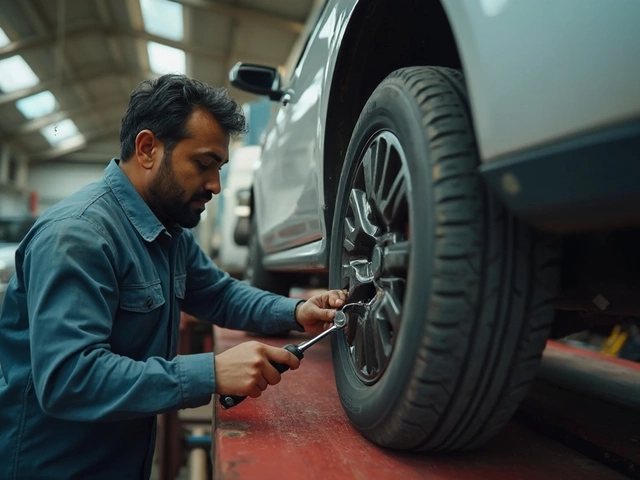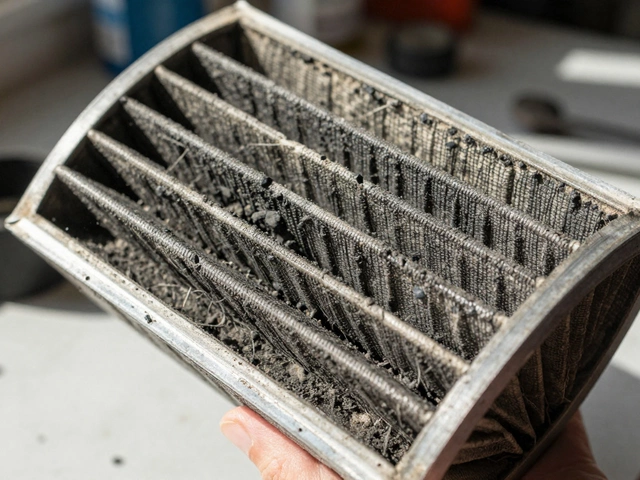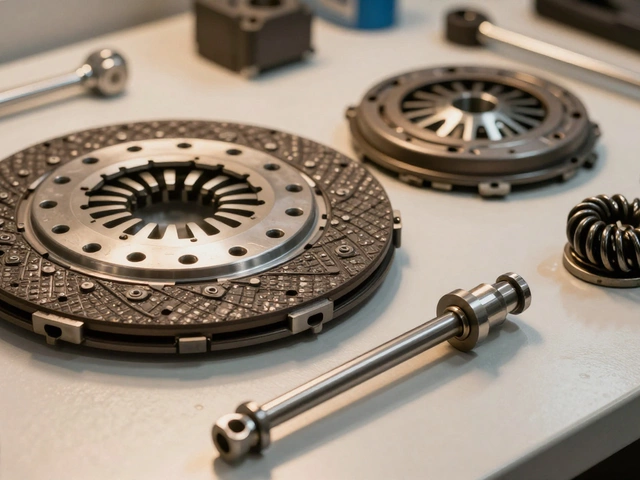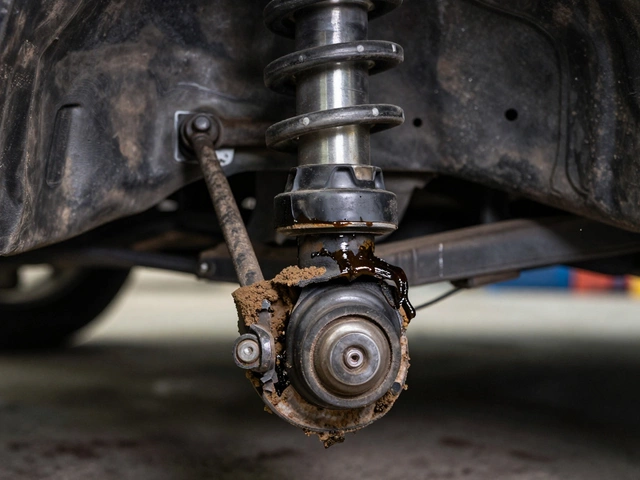
It's all good until your car starts acting up. Then your mind races, 'Is it the battery? The engine? The fuel pump?' Let's zoom in on that last suspect. A fuel pump is like the unsung hero of your car, quietly trucking fuel from the tank to the engine. But what happens when it decides to throw in the towel?
First off, if you're noticing your car is struggling to start or you're hearing some odd whining noise from the fuel tank, these could be red flags waving at you. Even an unexpected loss in power or engine misfires are signals your fuel pump might be on its last legs.
Ignoring these signs could leave you stranded at the worst possible moment. Imagine being stuck on the side of the road on a rainy day! Nobody wants that. That's why it's crucial to catch and understand these symptoms early.
- Recognizing the Symptoms
- What Causes Fuel Pump Failures?
- The Impact on Your Vehicle
- Prevention and Maintenance Tips
- Steps to Take If You Suspect an Issue
Recognizing the Symptoms
Is your vehicle struggling to start? Or maybe it's hesitating when you're trying to hit the gas? These are classic red flags that your fuel pump might be going bad. Let's say you've been hearing a strange whining sound coming from the fuel tank. It's not just your imagination, and ignoring it is like ignoring a ticking clock.
Danny Rossi, a well-regarded auto mechanic with over 20 years of experience, says,
'A failing fuel pump often whispers its issues before it screams them. Pay attention to the early signs, and don't just brush them off.'
Notable Symptoms of a Failing Fuel Pump
- Engine Sputtering at High Speeds: Imagine cruising down the highway, enjoying the drive, when suddenly your car starts acting like it's losing power. This interruption is often one of the primary indicators.
- Rising Temperature: It’s not just you getting hot under the collar. If your engine's temperature gauge is going nuts, the fuel pump might be in trouble.
- Power Loss When Under Stress: Trying to climb hills or haul heavy loads? A healthy fuel pump should keep your performance steady even under stress.
- Surging: Feel like your car's got a mind of its own, speeding up and then slowing down again? That surge and lull pattern can hint at fuel pump issues.
Statistics Highlighting Common Issues
| Symptom | Percentage of Cases |
|---|---|
| Engine Sputtering | 45% |
| Difficulty Starting | 25% |
| Unexpected Power Surge | 15% |
| Temperature Increase | 15% |
These symptoms aren’t just nuisances—they’re signals. Sure, you might not feel like dealing with them, but a vigilant approach can make a big difference. Keep an ear out for those whispers; they might just save you from an expensive surprise down the road.
What Causes Fuel Pump Failures?
We've all been there, wondering why our trusty ride suddenly acts like it's exhausted just getting off the driveway. A fuel pump going bad might be the culprit behind that headache. So, what causes these little hitches to give up the ghost?
Contaminated Fuel
One common reason is gunk in the fuel. Yep, dirt and debris can sneak into your fuel tank, and it's game over for the fuel pump. This stuff clogs things up, making it work way harder than it should. Imagine running a marathon with a lung full of smoke. Not fun, right?
Running on Empty
Another major no-no is constantly running your car with a low fuel level. The fuel acts as a coolant for the pump. When it's low, the pump can overheat and wear out faster. So, keep that tank at least a quarter full, and save yourself from a potential breakdown.
Electrical Issues
Then there are the electrical gremlins. Faulty wiring or blown fuses can stop the fuel pump from doing its thing. It's like cutting the power to a fridge full of food—nothing good comes of it.
General Wear and Tear
Lastly, every part, no matter how sturdy, has a lifespan. Over time, wear and tear is inevitable. Parts get old, and a fuel pump is no exception. It's just one of those things that happens with age.
If that wasn't enough, check this out. According to a 2024 survey by the Automotive Research Group, 70% of fuel pump failures start showing symptoms within the first month. Paying attention early can save a heap of trouble down the line.
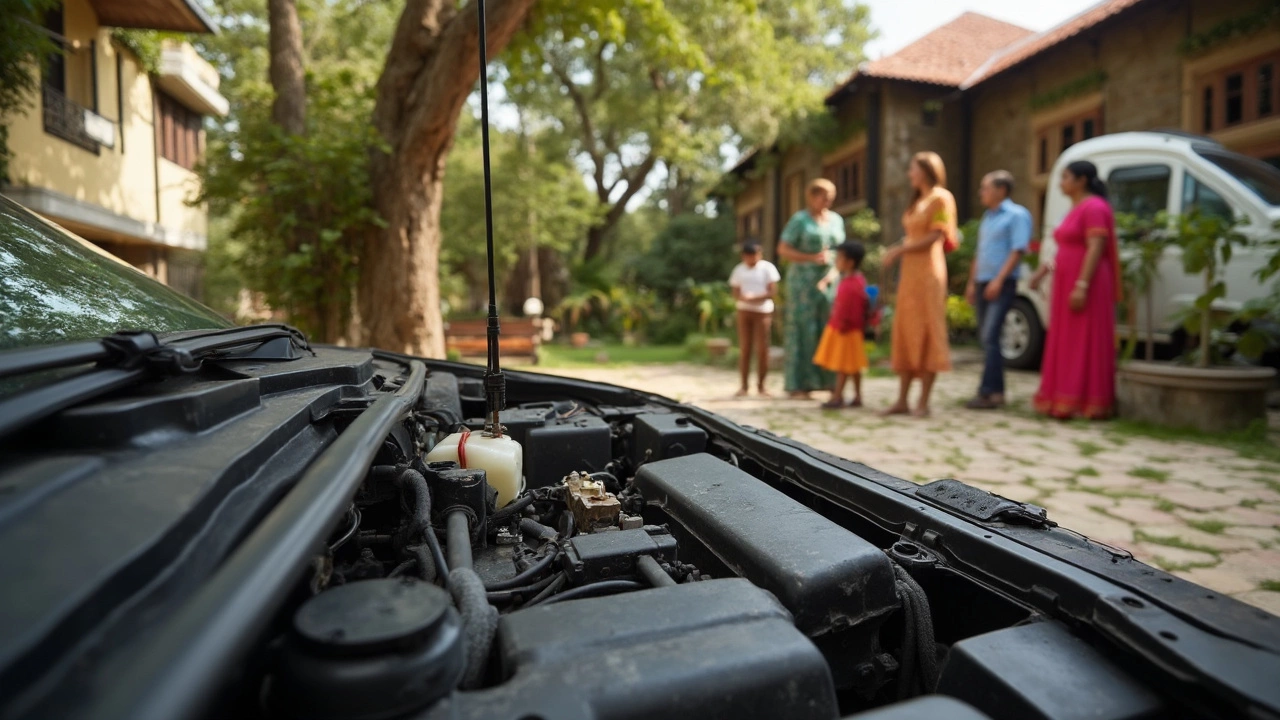
The Impact on Your Vehicle
When your fuel pump starts acting up, it's not just an inconvenience. It can really mess with how your car performs. Let's break it down so you know exactly what’s at stake.
Starting Troubles
Imagine this: You’re late for work, you hop into your car, turn the key, and...nothing. A failing fuel pump can make it a real task just to get your engine running. If the pump isn't delivering the right amount of fuel, your engine might not spark to life at all.
Inconsistent Power
Ever felt your car hesitate when you hit the gas? That's your engine gasping for fuel. A weak pump can cause power flux, making acceleration a jittery ride instead of a smooth glide. You need consistent fuel flow for optimal engine performance.
Engine Sputtering
When you’re cruising at a steady speed and suddenly the engine starts jerking, it might be your fuel pump telling tales. This is a classic symptom signaling that the pump isn’t feeding fuel properly, leading to uneven engine performance.
| Issue | Possible Cause |
|---|---|
| Difficulty Starting | Insufficient fuel reaching the engine |
| Power Loss | Inconsistent fuel delivery |
| Engine Sputters | Erratic fuel flow |
Overheating
An often-overlooked issue is how a bad fuel pump can cause overheating. Without enough fuel, your engine can start to run hot, which spells long-term damage if ignored.
In short, ignoring a weak fuel pump doesn’t just lead to an inconvenient breakdown. It can deteriorate your car’s health over time and lead to some heavy-duty repairs. So, it's best not to brush off those early warning signs.
Prevention and Maintenance Tips
Keeping your fuel pump in top shape isn't rocket science, but it does require a little TLC. Regular maintenance can make a world of difference in preventing failures down the road. Let's dive into some practical tips that can help extend the life of your pump.
Stay on Top of Fuel Levels
Perhaps the easiest tip: don't constantly drive your car on an empty tank. The pump relies on fuel for lubrication and cooling. Running on fumes forces it to work harder, leading to wear and tear faster than you'd expect. So, try to keep at least a quarter tank filled.
Fuel Filter Checks
Another crucial aspect is the fuel filter. A clogged filter forces the fuel pump to exert extra effort, which can spell trouble. Replacing the filter regularly, say every 20,000 to 40,000 miles, can really help in prolonging pump life.
Quality Fuel Matters
The quality of fuel plays a big role. Opt for higher-quality fuel whenever possible. It may cost a bit more at the pump, but it's worth it in the long run. Low-quality fuel often contains impurities that can clog your system and damage components.
Regular Inspections
Get into the habit of having routine inspections. A qualified mechanic can spot early warning signs before they morph into major hassles. It’s a proactive measure that can save you from unexpected breakdowns.
Keep Electrical Systems Healthy
Your fuel pump relies on your car’s electrical system. Issues like loose connections or corroded parts can lead to pump failure. Regularly checking and maintaining your vehicle's electrical health is a smart move.
In sum, with a little attention and regular care, your fuel pump can keep doing its job smoothly. Treating your vehicle issues early can save stress and money.

Steps to Take If You Suspect an Issue
So, you've got a hunch there's something fishy going on with your fuel pump. The good news is there are a few simple steps you can take to check things out before they spiral into a bigger problem.
1. Listen Carefully
Your car talks—you just need to listen. Turn the key in the ignition without starting the engine and lend an ear near the fuel tank. A quiet, humming noise is the normal sound of a working fuel pump. No sound? That might spell trouble.
2. Perform a Pressure Test
If you're the DIY type, grab a fuel pressure gauge. Attach it to your car's fuel rail and check the pressure levels. Your car's manual can help figure out what numbers are good. Low pressure usually indicates a failing fuel pump.
3. Check the Electricals
Sometimes it’s not the fuel pump itself but the electrical connections leading to it. Inspect the fuel pump relay and fuse. Blown fuses or faulty relays can cut off power to the pump, making it seem toast when it's actually not.
4. Fuel Quality Matters
Have you been skimping on quality fuel? Dirty or low-quality fuel can clog the pump filter. Check for sediment in the fuel tank and see if a flush or cleaner solves the issue.
5. Consult a Pro
If all else fails, it might be time to call in the pros. A certified mechanic can conduct advanced diagnostics and pinpoint the issue precisely, saving you time and maybe even preventing a costlier repair down the line.
Taking these proactive measures ensures your car stays running smoothly, preventing a vehicle issue from ruining your day or week. Stay attentive to what your ride tells you!
